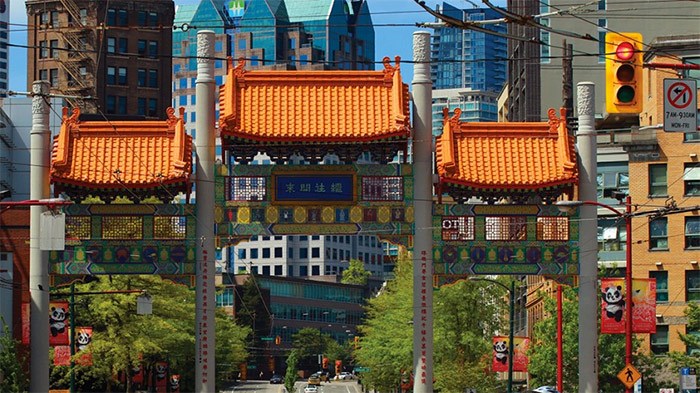When he bought Golden Crown Centre at 211 East Georgia Street in 2011, Steven Fast had high hopes.
Providence Health Care was planning a new high-tech home for St. Paul’s Hospital to the south, and the city was set to adopt new density and height provisions for the area. Better transit infrastructure and new residents created opportunities to redevelop a portion of the building’s parkade as office space and add a storey or two of residential.
But those hopes died over the past year as activists urged the city to avoid gentrification of the area, arguing it would put housing costs further out of reach and erase what remained of the region’s historic Chinatown.
The city, keen to be seen to be doing the right thing, backtracked on a development policy for the area adopted in 2011.
Beedie Development Group had its plans for a vacant lot at 105 Keefer Street rejected, and property owners like Fast saw close to half the density the city allowed in 2011 evaporate.
Policies adopted in 2011 let properties have a floor-space ratio (the built space allowed relative to a site’s area) of 8.5 to 9, but the downzoning cut that to 4.5. Building height is also limited unless the developer can demonstrate a social benefit.
Additional housing and jobs space, which activists claimed to want, faced new, perhaps impossible hurdles.
“We determined with two different structural engineers that we could probably build two and a half floors on the top of the building without undermining the existing structure,” Fast said. “We can’t go higher, so we can’t add anything to the building. You couldn’t even build what’s there now, and that’s ludicrous.”
Thirty-year decline
Michael Sung, whose family ran Pacific Produce – now on Malkin Avenue – said Chinatown’s decline over the past 30 years was difficult to watch, but the 2011 development guidelines finally created opportunities for reinvestment.
Sung owns a small commercial unit on Gore Street that’s home to a medical clinic. It struggled for years to attract talent, but things were starting to turn around. New residents were moving in, and new units were being built for seniors in line with city requirements.
“The revitalization plan that was in place for seven years had very little displacement,” Sung said. “It was a matter of densification, bringing new residents to this part of town. It wasn’t tossing out old people to bring in newer, wealthier people.… Things were trending upwards, slowly and surely.”
By changing course, the city sends the wrong message to investors and dampens revitalization efforts, he said.
“[It] presents a very problematic profile for what it means to do business in Vancouver, and what it means to partner with the city in its efforts to redevelop certain areas or revitalize certain areas.”
Checkered history of engagement
This isn’t the first time the city’s approach to planning has raised hackles.
Departing mayor Gregor Robertson pledged during the 2014 civic election to do better at engaging with citizens after a checkered history that included disparaging speakers critical of development in the West End as “hacks” during a 2010 council meeting.
When city planners drafted a new industrial zoning for Railtown in 2016, some didn’t step foot in the area until after local property owners pushed back.
When the city began to backtrack on its 2011 policies for Chinatown, Fast said council passed a motion approving a three-week consultation with property owners and other stakeholder groups, including Chinatown Voices, of which he’s a member.
But contrary to the extensive, thought-out consultation that shaped the 2011 guidelines, this spring’s consultation began with city staff noting that a report on development policies could not be changed except by city council.
“What was supposed to be a consultation became an information session of them explaining the zoning,” Fast said. “It opens up the rezoning to a legal challenge later, because they didn’t follow through with due process.”
Chinatown Voices isn’t pursuing legal action at this point. While the city is on notice, Fast is pinning greater hopes on an eventual change in civic government to restart revitalization down the road.
“Why would you give up 40 per cent of the value of your property to sell today?” he asked, referring to the hit the downzoning could deliver property owners who walk away from what remains a prime area. “I’m just going to wait for four more years because there’s going to be a new council. And then St. Paul’s Hospital will be well underway, the viaducts will be down and some of the new 12- and 22-storey towers built on False Creek northeast will be up.”



